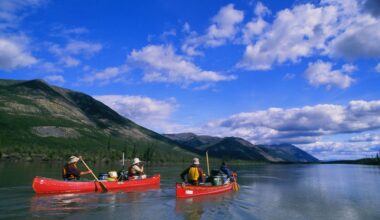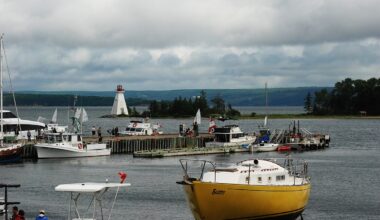Published May 19, 2025
Let me tell you a secret about Canada that most people don’t know: right in the geographic center of the continent sits a province that’s been quietly building one of the most successful immigrant integration stories in North America. Manitoba doesn’t shout about its accomplishments – it’s too modest for that – but the results speak volumes.
This is Canada’s prairie heart, where endless skies stretch beyond imagination, where northern wilderness meets agricultural abundance, and where communities have perfected the art of turning newcomers into neighbors. Manitoba has figured out something that bigger, flashier provinces are still trying to learn: how to create genuine opportunity while maintaining authentic community.
Curious about Canada’s best-kept success story? Let’s explore why Manitoba consistently ranks among the top destinations for immigrant retention and satisfaction, despite flying completely under most people’s radar.
The Geographic Center: Where Canada’s Story Converges
Manitoba’s location isn’t coincidental to its character – it’s fundamental:
Continental Crossroads
Positioned at the heart of North America, Manitoba serves as a natural meeting point:
- Geographic center of Canada with connections to all regions
- Hudson Bay access providing Arctic ocean connections
- Major river systems linking to both Pacific and Atlantic watersheds
- Transportation hub with rail and highway networks spanning the continent
- Time zone positioning connecting eastern and western business hours
This central position has historically made Manitoba a place where different cultures, economies, and ideas naturally converge and blend.
Landscape Diversity
Within Manitoba’s borders, surprising geographic variety unfolds:
The Interlake Region
- Pristine lakes and cottage country providing year-round recreation
- Lake Winnipeg: the world’s 10th largest freshwater lake
- Fishing, boating, and summer cabin culture integral to Manitoba lifestyle
Prairie Parkland
- Rich agricultural soils supporting diverse farming operations
- Small communities maintaining strong rural character
- Aspen parkland creating distinct ecological zones
- Rolling hills providing gentle topographic relief
Northern Wilderness
- Boreal forest extending to Hudson Bay
- Churchill: world’s polar bear capital accessible by train
- Untouched wilderness offering authentic northern experiences
- Indigenous communities maintaining traditional lifestyles
The Red River Valley
- Some of North America’s most fertile agricultural soil
- Flood-prone but incredibly productive farmland
- Historic transportation route connecting to the Mississippi River system
This diversity means Manitoba residents can access prairie agriculture, northern wilderness, and substantial lakes within the same province.
Urban-Rural Balance
Manitoba maintains a healthy balance between urban and rural life:
- Winnipeg housing 60% of provincial population
- Strong rural communities maintaining viability
- Easy travel between urban amenities and rural character
- Agricultural economy supporting numerous smaller centers
- Resource industries providing employment in northern regions
This balance creates lifestyle options from cosmopolitan urban to authentic rural, often within an hour’s drive.
Winnipeg: The Prairie Metropolis That Works
Let’s be honest – Winnipeg doesn’t have the best reputation among people who’ve never lived there. But residents and newcomers consistently discover a city that functions better than much larger, more famous centers:
Urban Efficiency
Winnipeg offers big-city amenities with small-city accessibility:
- 750,000+ residents in metropolitan area
- Downtown that’s actually livable and walkable
- Traffic congestion minimal compared to Toronto or Vancouver
- Affordable housing within reasonable distance of employment centers
- Public transit system that actually serves riders’ needs
Cultural Surprise
For a prairie city, Winnipeg’s cultural scene impresses:
- Royal Winnipeg Ballet: world-renowned classical company
- Winnipeg Symphony Orchestra with international reputation
- Exchange District: historic warehouse area converted to arts hub
- Fringe Theatre Festival: second-largest in North America
- Museum of Human Rights: architecturally stunning national museum
Economic Diversity
Manitoba’s economy extends well beyond agricultural stereotypes:
Aerospace Industry
- Boeing Canada operations and other aerospace manufacturers
- Specialized maintenance and manufacturing facilities
- Growing unmanned aerial vehicle (drone) sector
- Proximity to major North American aviation markets
Information Technology
- Growing tech sector with competitive cost advantages
- Companies like Skip the Dishes (now part of Just Eat Takeaway) originated here
- Telecommunications and software development strength
- Government and healthcare IT opportunities
Financial Services
- Great-West Life and other major insurance companies
- Credit union movement particularly strong in Manitoba
- Agricultural finance and commodity trading
- Competitive costs for financial services operations
Manufacturing
- Diversified manufacturing from food processing to machinery
- Transportation equipment and parts production
- Furniture and wood products utilizing regional resources
- Competitive labor costs and central location advantages
This economic diversity means Manitoba offers career opportunities across multiple sectors, not just agriculture and resources.
The Manitoba Advantage: Why Immigrants Stay
Here’s where Manitoba truly shines – immigrant retention and integration:
Community Integration Model
Manitoba has developed perhaps Canada’s most successful immigrant integration approach:
Provincial Nominee Program Success
- Highest retention rate of provincial nominees in Canada
- Community-driven nomination process
- Strong employer and community connections
- Emphasis on long-term settlement rather than just economic selection
Settlement Support Network
- Extensive immigrant-serving organizations throughout the province
- Coordinated approach between government, non-profits, and communities
- Multi-generational settlement support addressing ongoing needs
- Cultural community associations maintaining heritage connections
Regional Distribution
- Successful settlement in smaller communities, not just Winnipeg
- Rural and northern communities actively welcoming newcomers
- Economic opportunities available outside major centers
- Community sponsorship programs creating local connections
Cultural Mosaic Success
Manitoba’s approach to multiculturalism creates genuine integration:
- Filipino community: one of Canada’s largest and most established
- Indigenous-newcomer partnerships addressing mutual challenges
- French-Canadian heritage creating bilingual accommodation
- European heritage communities (Ukrainian, German, Mennonite) providing settlement models
- Growing diversity in recent newcomer origins
This multicultural success isn’t just numbers – it’s reflected in community leadership, business ownership, and political participation by immigrants and their children.
Economic Mobility
Manitoba provides genuine pathways to economic advancement:
- Lower cost of living allowing savings and investment
- Entrepreneurship support and access to capital
- Professional credential recognition processes
- Skills training aligned with labor market needs
- Business succession opportunities as established owners retire
These factors combine to create environments where immigrant families can build prosperity over generations, not just survive.
Climate Honesty: Embracing Prairie Seasons
Let’s address the elephant in the room – Manitoba’s climate requires honest discussion:
Winter Reality
Manitoba winters are serious business:
- Average temperatures -20°C to -30°C (-4°F to -22°F)
- Extreme cold events occasionally reaching -40°C (-40°F)
- Snow cover typically November through March
- Short daylight hours in December and January
- Wind chill making temperatures feel even colder
Winter Adaptation
However, Manitobans have mastered winter living:
- Excellent heating systems and winterized infrastructure
- Winter recreation culture (skating, skiing, snowmobiling, ice fishing)
- Community spaces designed for cold weather gathering
- Proper clothing and preparation becoming second nature
- Appreciation for winter beauty and seasonal rhythm
Summer Glory
Manitoba summers provide compensation for winter challenges:
- Warm temperatures typically 20-30°C (68-86°F)
- Extended daylight hours (16+ hours in June)
- Low humidity creating comfortable conditions
- Abundant sunshine and clear skies
- Perfect conditions for outdoor recreation and festivals
Seasonal Benefits
The extreme seasons create unique advantages:
- Distinct seasonal rhythms creating variety and anticipation
- Winter recreation opportunities unavailable in milder climates
- Appreciation for seasonal changes and natural cycles
- Community bonding through shared weather experiences
- Four-season wardrobes and activity planning
Most Manitoba residents develop genuine appreciation for the seasonal variety, even while acknowledging winter challenges.
Cost of Living: Prairie Value
Manitoba offers exceptional value for money across all categories:
Housing Affordability
Housing costs remain remarkably reasonable:
- Average home price in Winnipeg: $350,000
- Average one-bedroom rental: $950-$1,200/month
- Rural properties available from $150,000-$250,000
- Large properties and homes accessible to middle-class families
- Property taxes reasonable compared to other provinces
Daily Expenses
Manitoba provides excellent value for daily living:
- Groceries: Below national average with local produce available
- Transportation: Affordable public transit, reasonable fuel costs
- Healthcare: Comprehensive coverage with good access
- Recreation: Abundant low-cost outdoor activities
- Utilities: Competitive electricity and heating costs
Economic Advantages
Several factors enhance purchasing power:
- Provincial sales tax of 7% (moderate compared to other provinces)
- Income tax rates competitive with other provinces
- Lower overall cost of living compared to major urban centers
- Higher median household incomes relative to living costs
- Economic stability reducing cost volatility
This combination means Manitoba residents often enjoy higher living standards on moderate incomes compared to expensive urban centers elsewhere.
Education and Innovation: Building Tomorrow
Manitoba’s educational system provides strong foundations:
K-12 Excellence
- Strong academic performance in national assessments
- French immersion widely available throughout the province
- Indigenous education initiatives addressing historical gaps
- Arts education emphasis supporting cultural development
- Rural school maintenance supporting community sustainability
Post-Secondary Strength
Manitoba universities offer quality education:
- University of Manitoba: major research institution
- University of Winnipeg: urban university with community focus
- Brandon University: rural setting with strong programs
- Comprehensive college system providing career training
- Specialized institutions serving specific professional needs
Research and Innovation
Manitoba supports innovation across multiple sectors:
- Agricultural research addressing global food security challenges
- Medical research particularly in infectious diseases and diabetes
- Clean technology development
- Northern and Arctic research initiatives
- Indigenous knowledge preservation and integration
This educational and research foundation supports Manitoba’s economic development while providing career pathways for residents.
Rural and Northern Life: Beyond Winnipeg

Manitoba offers alternatives to urban living:
Rural Communities
Small towns throughout Manitoba maintain viability:
- Agricultural service centers supporting surrounding farms
- Tourism-based communities near lakes and recreational areas
- Resource-based towns in mining and forestry regions
- Retirement communities offering affordable, peaceful living
- Heritage communities maintaining cultural traditions
Northern Opportunities
Northern Manitoba provides unique experiences:
- Thompson: mining center with northern lifestyle
- The Pas: transportation hub and service center
- Churchill: eco-tourism destination with international profile
- Flin Flon: mining community with recreational opportunities
- Indigenous communities offering cultural exchanges
Regional Advantages
Rural and northern life in Manitoba offers:
- Significantly lower cost of living
- Strong community connections
- Access to outdoor recreation
- Entrepreneurship opportunities
- Authentic prairie and northern experiences
These alternatives provide lifestyle options often unavailable in more urbanized provinces.
Conclusion: Manitoba’s Quiet Success Story
Manitoba represents something increasingly rare in Canada, a place where traditional values meet progressive opportunities, where communities actively work to integrate newcomers, and where success is measured by quality of life rather than just economic indicators.
You’ll Likely Thrive in Manitoba If You:
- Value community integration and authentic relationships
- Appreciate seasonal variety and winter recreation
- Seek affordable living with economic opportunity
- Want to contribute to established but evolving communities
- Prefer substance over style in your living environment
You Might Face Challenges If:
- You cannot adapt to serious winter conditions
- You require extensive urban entertainment and nightlife
- You need immediate access to major international connections
- You prefer anonymous urban living over community involvement
- You work in industries with limited prairie presence
Manitoba offers something precious – the opportunity to build meaningful lives in supportive communities while maintaining connection to the broader world. It’s Canada’s heartland in the truest sense, where the nation’s best values flourish quietly but persistently.
Helpful Resources for Learning More:
- Immigration Manitoba
- Travel Manitoba – Official Tourism
- Economic Development Winnipeg
- Manitoba Education
- Manitoba Government Services






